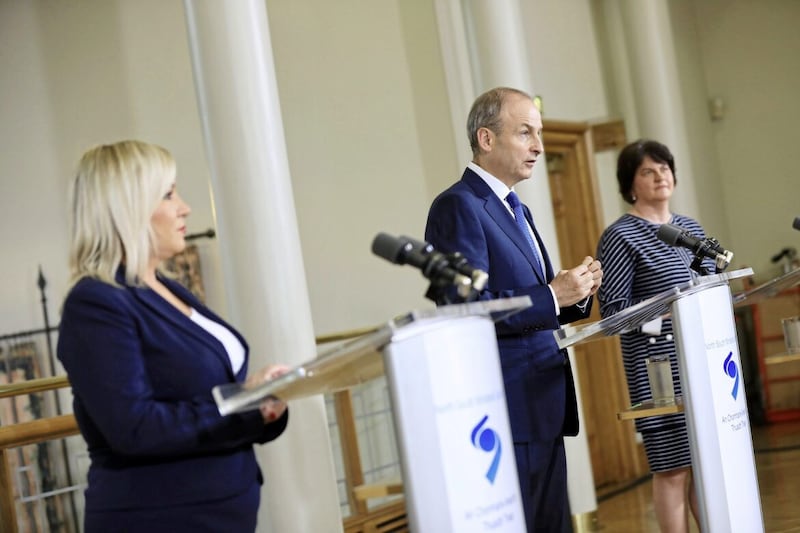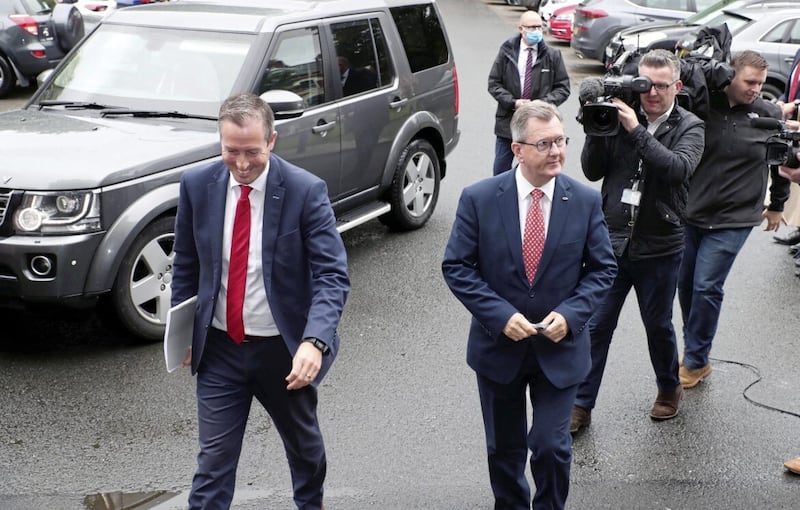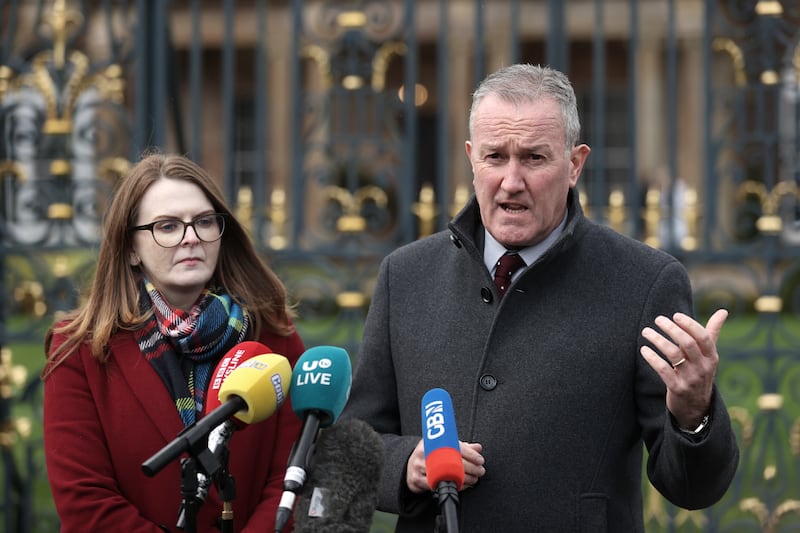During the Irish government’s announcements of funding for projects in the north and all-island developments, it went largely unnoticed that Micheál Martin said he was pleased by “positive, public messages from the executive” about the North-South Ministerial Council (NSMC). He added that he “anticipated a plenary meeting” soon.
In case you forgot, this body was the first of the Good Friday Agreement institutions that Jeffrey Donaldson hit with his wrecking ball in September 2021 in his panicked, rash and irresponsible response to loyalist opposition to the Irish Protocol.
The NSMC is Strand Two of the GFA. As such it’s an integral part of the GFA. Paragraph 13 states: “It is understood that the NSMC and the Northern Ireland Assembly are mutually inter-dependent and that one cannot successfully function without the other.”

It meets at plenary and sectoral level. Plenaries are led by first and deputy first ministers and the taoiseach; sectoral by the appropriate ministers north and south.
Donaldson, who has always opposed the GFA, showed his contempt for its institutions by withdrawing his party from the NSMC, an action the High Court found unlawful. Mr Justice Scoffield concluded: “That is because ministers are acting in plain breach of what they know to be their legal obligations. Each of the respondents affirmed the ministerial pledge of office, committed themselves to discharge all the duties of their ministerial office and to uphold the rule of law. By their actions the respondents, and principally the first respondent [Paul Givan] by his actions, are in abject breach of their solemn pledge.”
The judge declined to make an order mandating the DUP to return, perhaps in the forlorn hope they’d see sense, but within four months Donaldson had completed his dismantling of devolution institutions here when he pulled down the executive.

The NSMC has done a lot of good work advancing all-Ireland systems in a wide range of fields. If you look at the joint communique of its last plenary meeting in July 2021, which runs to 39 paragraphs, you can see the range of areas which has been held up and frustrated by the DUP’s divisive bloody-minded behaviour.
Arguably Micheál Martin’s pet Shared Island project duplicates the work of the NSMC in many of these areas but there are a couple of crucial differences. First, Shared Island projects don’t need DUP agreement. The GFA states: “All council decisions to be by agreement between the two sides.” Needless to say the DUP works to nix or block whatever all-Ireland development they can regardless of whether it would be to the benefit of everyone on the island. It’s what they do.
With Sinn Féin taking charge of infrastructure and economy in the new executive for the first time, there is real scope for all-Ireland developments in these vital areas
Secondly, the Shared Island projects can be outside the remit of the dozen areas listed in the GFA for north-south cooperation and implementation. Furthermore, they don’t have to be funded – even in part – by the executive, as for example places for student nurses announced last year.

With Sinn Féin taking charge of infrastructure and economy in the new executive for the first time, there is real scope for all-Ireland developments in these vital areas. Marketing the whole island by enhancing joint efforts of Tourism Ireland and Tourism NI is one area neglected and at times frustrated by the DUP. It can now be whole-heartedly promoted. The same applies to cross border transport, obviously the infamous A5 from Donegal to Dublin, and Strabane to Letterkenny also announced on Wednesday. However, the €12.5 million for hourly trains to Dublin couldn’t come soon enough; the present rail link is a disgrace.
What is to be celebrated is the prospect of ministers north and south sitting across from each other at the NSMC who have the interests and well-being of people across this island at heart – or, as the taoiseach said, for all those who call this island home. If the DUP huff, these plans will improve the lives of their voters in spite of them.



